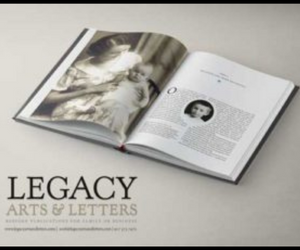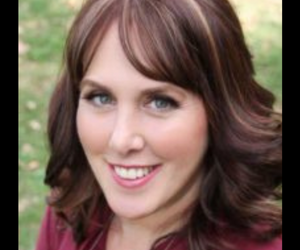Infertility: Advances In Treatment
Age and Infertility are Linked
Infertility affects roughly 12% of women. By the time a woman is in her early 40s, her chance of infertility rises to 20%. It’s a particularly difficult problem for the older woman because the quality of her eggs deteriorated as she aged. A woman in her 20s would typically have genetic abnormalities that would cause an egg to be unviable in 60% of her eggs. In her 40s, that same woman is likely to have 95% of her eggs be unviable. Realistically, the older a woman gets, the more problematic conception becomes.
IN VITRO FERTILIZATION (IVF) is not a Panacea
Your patients may have read stories about movie stars in their mid-50s giving birth to twins. Unfortunately, the popular press perpetuates the myth that you can be fertile forever. However, it’s not so. IVF is not quick, easy, or reliable. Further, it will typically cost in the $14,000 to $19,000 range for each attempt and insurance may not cover that. The success rates range from 5% to 60%, depending on the age and health status of the woman.
Freezing Eggs Can Be a Valuable Option
In the case of a woman who knows she will be delaying childbearing, there is a way of sidestepping the problem of her eggs becoming less viable as she ages. Normally her eggs will age much faster than her reproductive organs. If she chooses to freeze her eggs, she can stop the aging process for her eggs. Her reproductive organs will continue to change, but importantly, their rate of aging is slow enough that she’s highly likely to be able to carry a fetus to term in her 40s. The downside is the cost, typically in the $15,000 range, and she can’t be sure she’ll get a baby at the end. Her success is likely to be around 65%, but keep in mind that this means that 35% will not get a baby.
New Advances in IVF Increase The ODDS of Having a Healthy Baby
Women generally will have many good eggs and many infertile eggs. Recently we have made enormous strides in identifying which eggs have the chromosomal abnormalities that would result in miscarriages. By the time an embryo is five days old, we’ve found that it’s safe and reliable to take one of the 40 to 80 cells that are present and test that cell for chromosomal abnormalities. The way we can do this is, we take the individual cell that we harvested and cause it to produce enough copies of itself so that we can test for all the known chromosomal abnormalities. With this process, we can find the embryos that are destined to make a healthy baby, as opposed to ones that would result in failure to implant or an early miscarriage.
Miscarriages are Remarkably Common
About 15% of women miscarry. The good news for a woman who has miscarried once or even twice, is that she’s no more likely than someone in the general population to miscarry again. It’s nature’s way of making up for its errors, which, by the way, are frequently chromosomal errors. The odds of a serious underlying problem don’t really increase until there’s a third miscarriage. However, when a woman goes through a miscarriage, even for an unplanned pregnancy, it is a devastating experience, and both the woman and her loved ones need to recognize that asking her to be “strong” is probably not the best approach. Expressing her grief and disappointment can speed the process of getting over it.
Search Blogs
Latest Posts
Russia’s Unusual New Method Of Attack: Fake Bomb Threats
https://www.fairobserver.com/russian-newsrussia-news/russias-unusual-new-method-of-attack-fake-bomb-threats/ Publication – fairobserver.com
The Russian Occupation: a Ukrainian Political Prisoner’s Ordeal
https://townhall.com/columnists/mitzi-perdue/2024/04/06/the-russian-occupation-a-ukrainian-political-prisoners-ordeal-n2637446 Publication – townhall.com
“Bucha”: A Film About Torture, Rape, and Other Atrocities That Regular People Can Watch
https://foreignpress.org/journalism-resources/bucha-a-film-about-torture-rape-and-other-atrocities-that-regular-people-can-watch Publication – foreignpress.org
Brushes Against Bullets
https://www.kyivpost.com/post/30040 Publication – kyivpost.com
Subscribe to Updates
About Author

Mitzi Perdue is the widow of the poultry magnate, Frank Perdue. She’s the author of How To Make Your Family Business Last and 52 Tips to Combat Human Trafficking. Contact her at www.MitziPerdue.com
All Articles
A Contrarian Investment that Could Be Just Right for You
A Contrarian Investment that Could Be Just Right for YouSuppose for a moment that you’re an investor. Not just any investor. In this case you are Peter Hughes. You are a real person, although in fact Hughes is not your real name. Here’s what’s going on with you,...
Knowledge Services: Crucial in Today’s Knowledge Economy
Knowledge Services: Crucial in Today's Knowledge EconomyIf you’re beautifully organized, you can quickly find all your documents when you need them. However, if you’re like most people, the frustration and lost time spent trying to locate a needed document can be...
A Family Book Can Be a Priceless Investment
A Family Book Can Be a Priceless InvestmentImagine something terrible for a moment. If you lost your memory, as in Alzheimer’s, you would have lost one of the most basic factors that makes you you. Without memory, you’d have trouble making good decisions; you’d no...
The Soft Issues Are Really the Hard Issues!
The Soft Issues Are Really the Hard Issues!If you’re part of a business family and you’re also a parent of a school age child, which would be easier for you to do? Be honest! Choice A: Have the Sex Talk with your child Choice B: Have the Money Talk with your child...
Trust: How to Nurture a Key Factor in Family Success
Trust: How to Nurture a Key Factor in Family SuccessTRUST: HOW TO NURTURE A KEY INGREDIENT FOR FAMILY SUCCESS What does it take to be a successful multi-generational family business? Dennis Jaffe, PhD is one of the best people to ask. For more than 40 years, he’s...
Women’s Leadership Styles: There’s a Lot to Learn!
Women's Leadership Styles: There's a Lot to Learn!Women in family businesses face a particular set of distinct challenges when it comes to leadership style. Heather Powell, a family business coach for women and couples, has an impressive track record of dealing with a...






